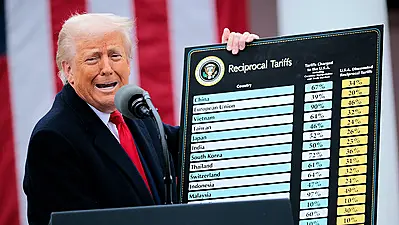
President Donald Trump said Tuesday that the United States plans to impose a “small tariff” on pharmaceutical imports, rising to 150 percent over 18 months and then 250 percent thereafter, to encourage domestic production.
“In a year, a year and a half at the most, that level will go up to 150 percent, and then to 250 percent, as we seek to have pharmaceuticals manufactured on our soil,” Trump told CNBC.
He did not specify the initial rate of tariffs on pharmaceuticals. Last month, Trump said tariffs on pharmaceuticals could reach 200%. In February, he said sectoral tariffs on pharmaceuticals and semiconductor chips would start at “25% or higher” and increase significantly over the course of the year.
Trump said Tuesday that he plans to announce tariffs on semiconductors and chips “in the next week or so,” but gave no further details.
The United States is reviewing its pharmaceutical sector for compliance with national safety standards, and the industry is bracing for potential sectoral tariffs. The administration has not yet announced when the results of the review will be released.
Several pharmaceutical companies have pledged multibillion-dollar investments in American manufacturing as Trump threatens import tariffs. AstraZeneca recently committed $50 billion to expand its U.S. operations.
PhRMA, the industry’s main lobbying group, did not immediately respond to a request for comment on the matter.

Irish city of Cork is worried about Trump’s attempts to attract pharmacists… Read more
The framework agreement between the US and the EU states that tariffs on pharmaceuticals and semiconductors are currently zero, but if the US raises tariffs after investigating imports, they will be capped at 15 percent.
Ireland’s pharmaceutical sector employs around 45,000 people and is one of the country’s key exports to the US.
Irish exports totalled €223.8bn last year, with around a third of that going to the US.
Of the €72.6 billion in US imports from Ireland, around €58 billion is pharmaceuticals and chemicals exported from Ireland.
Sourse: breakingnews.ie